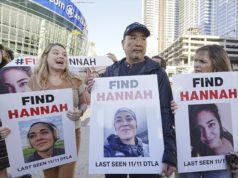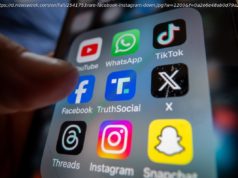«After DACA, I was proud to be able to thrive in this country. Now I can’t do anything that will make me stand out.»
Gordon Ip, 22, is just months away from a bachelor’s degree at the University of Nebraska at Omaha. He is a DACA student, a “Dreamer, ” with seven months’ protection from deportation left on his Deferred Action for Childhood Arrivals permit.
The Trump administration rescinded the program Tuesday, throwing Ip’s future — and that of more than 800,000 DACA-eligible young people — into question.
Ip arrived in the U. S. from Hong Kong legally, with his parents and an older brother, on a tourist visa when he was 4. His father works in construction, his mother at a nail salon. They didn’ t tell Ip about the family’s status until he was 17.
Since Trump’s election, Ip has been praying his parents, who are in Southern California, won’ t get deported. Now, he can’ t stop thinking about what might await him in Hong Kong.
Daniela Gerson spoke with Ip by phone hours after he learned of Trump’s decision.
My dad Facebook messaged me first: “Did you hear the news? Are you OK?”
The articles I’ m reading are calling us “aliens.” They make us seem foreign and unintelligible, so nobody will understand we’ re human beings. They say I’ m a criminal.
All day I have been sitting in class trying to pay attention. I’ m in the United States for the education that my parents save every penny to pay for. We pay our taxes. I saved up $10,000 myself, and I spent it all on tuition and school and classes in the first half year of school. I get no federal aid, obviously, as a DACA recipient.
I just need three more months to finish my degree. I’ m in the last stretch, and they’ re going to cut my legs from under me?
I am writing notes for a class about theater, history and literature, something I am incredibly interested in. But I can’ t focus for 10 seconds. All I can think is, do classes like this exist back in Hong Kong? And if they do exist, will I be able to understand the professor lecturing with my bad Cantonese? Will I be able to write notes, not knowing the characters? Will I be an outcast because I have to Google Translate the whole thing?
I’ m not a very emotional person, but I’ m just so scared. My family lived in hiding for so long, and I didn’ t even know I was hidden. Then, after DACA, I was proud to be able to thrive in this country. Now, I can’ t do anything that will make me stand out in a crowd. I feel like I have to go back into hiding.
When the news came out, I considered staying in my room, taking a mental health day. But then I thought, “That is how they win, ” and I can’ t do that.”
The strange thing is, on campus, it’s pretty much a normal day. When Trump was elected, the entire school was in mourning. The end of DACA is mostly invisible. The coordinator for “Dreamers” on my campus emails me. She says they will support me. But I don’ t want to confront this problem right now. I don’ t want to believe it. I just want it to go away.
Around friends who know about my situation, it’s been kind of awkward, like when people come up to you at a funeral. It’s not their fault, but they just don’ t understand. They have a place here. I belong nowhere.
Most other Dreamers won’ t recognize me as a Dreamer because I am Asian, not Latino.
Culturally, Chinese people suffer quietly and silently. That’s Confucianism: To respect your elders and to respect people who have power. Eventually, you will get your turn. But in America, we don’ t know if we’ re going to get our turn. We suffer silently for nothing.
Gordon Ip is majoring in communication studies at the University of Nebraska. Daniela Gerson is an assistant professor of journalism at Cal State Northridge and a senior fellow at the Democracy Fund. She is co-founder of the immigration newsletter Migratory Notes.






